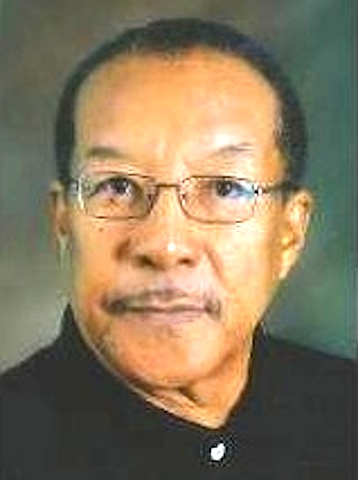Oliver Mills: The thinking citizen: a standard-bearer of democracy
By Oliver Mills


Our world today seems to be undergoing transformations at an accelerated pace. We read of and view street demonstrations happening on almost every continent at levels never before witnessed. Even in countries with previously some semblance of stability now face social challenges to do with the distribution of wealth, unemployment, freedom of expression, human rights, and the ever president evil of corruption.
In Hong Kong, a millionaire involved in the marches there, when asked what his reason was, when he was so wealthy, replied, “What’s the use of money when you are not free?”
At first glance, economic issues seem to dominate as the trigger for the demonstrations. But spilling from this are political concerns about government becoming more authoritarian, corruption in government, and political elitism that ignore the plight of those not so well endowed. These issues are at the centre of calls for more democracy
What is interesting here is that these demonstrations involve citizens of various persuasions, who have collectively and spontaneously taken to the streets to vent their feelings about governance and its failure to deliver.
Social and political pressures have produced political consciousness to the extent where citizens are willing to brave even the most extreme measures the state has unleashed on them, to make their voices heard. Events have triggered their thinking into taking practical action to restore the values of democracy and human and economic rights.
Here, the thinking citizen has become the standard-bearer of the values of democracy, and an activist for the democratic cause.
But what characterizes the thinking citizen which makes him or her a standard-bearer of democracy?
The thinking process enables citizens to view issues critically and creatively. This is particularly the case when their elected representatives abuse their authority, show disrespect and disregard for the country’s core values, and use the institutions of government for their private purposes. Here, the citizen evaluates these behaviours, shares their concerns with others, and this creates an environment of awareness where a critical mass is fostered which enriches the consciousness of the ‘body politic.’ From this point collective democratic action is taken to either restore the traditions of the country, or positively seek to solve the issues which brought about social action in the first place.
This kind of critical and creative thinking which is actually problem-solving, could further result in the resignation from political office of those whose improper actions caused the crisis.
The thinking citizen is a standard-bearer of democracy because he thinks for himself in a responsible way, making judgments that are carefully considered. This means that this citizen is not a casualty of fake news, ‘politricks,’ or alternative facts. This individual analyses what is read or said and comes to an independent conclusion based on a careful assessment of what is presented, and arrives at his or her own interpretation, not influenced by the ideas of political operatives, or “group think.”
As a result of these thinking skills, ideas are deprived of a single view point, or the necessity to achieve a result beneficial to power holders. The situation is reversed where power is now exercised by majority involvement, and this is one of the corner stones of democracy, and an important trigger for change. The new, critical thinking then becomes embedded in how institutions are structured, and how they should operate. In addition, how to assess alternatives, and arrive at workable democratic solutions, now pervade the process of decision making.
The citizen who thinks, develops the capacity to explain differences and disagreements that inevitably arise in social discourse, in a reasonable way, so that everyone becomes a winner, because a wider social objective aimed at societal transformation is involved. And real democracy requires this to achieve a consensus. When explanations are clear and not ambiguous, a greater understanding is possible. And harmony can prevail.
The citizen who thinks and uses his critical faculties is a positive asset to society in that he is able to determine what is not working, and how it could be made right before challenges arise. He can present different points of view about an issue, and conclude which is the best way forward. He also has the tools to enable fellow citizens to come to their own conclusions about matters, and not become the victims of the self-interests of others.
Oliver Mills is a former lecturer in education at the University of the West Indies Mona Campus. He holds an M.Ed degree from Dalhousie University in Canada, an MA from the University of London and a post-graduate diploma in HRM and Training, University of Leicester. He is a past Permanent Secretary in Education with the government of the Turks and Caicos Islands





